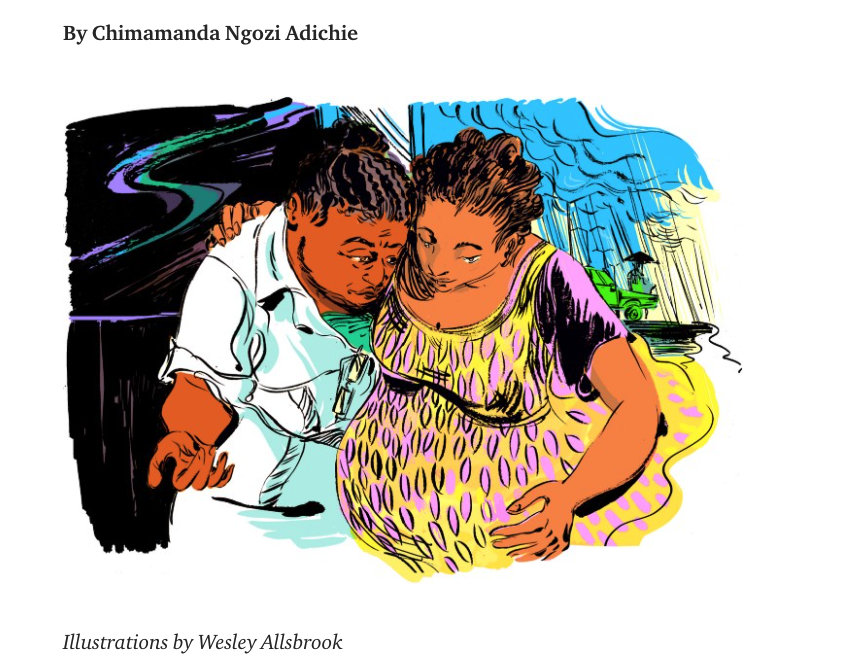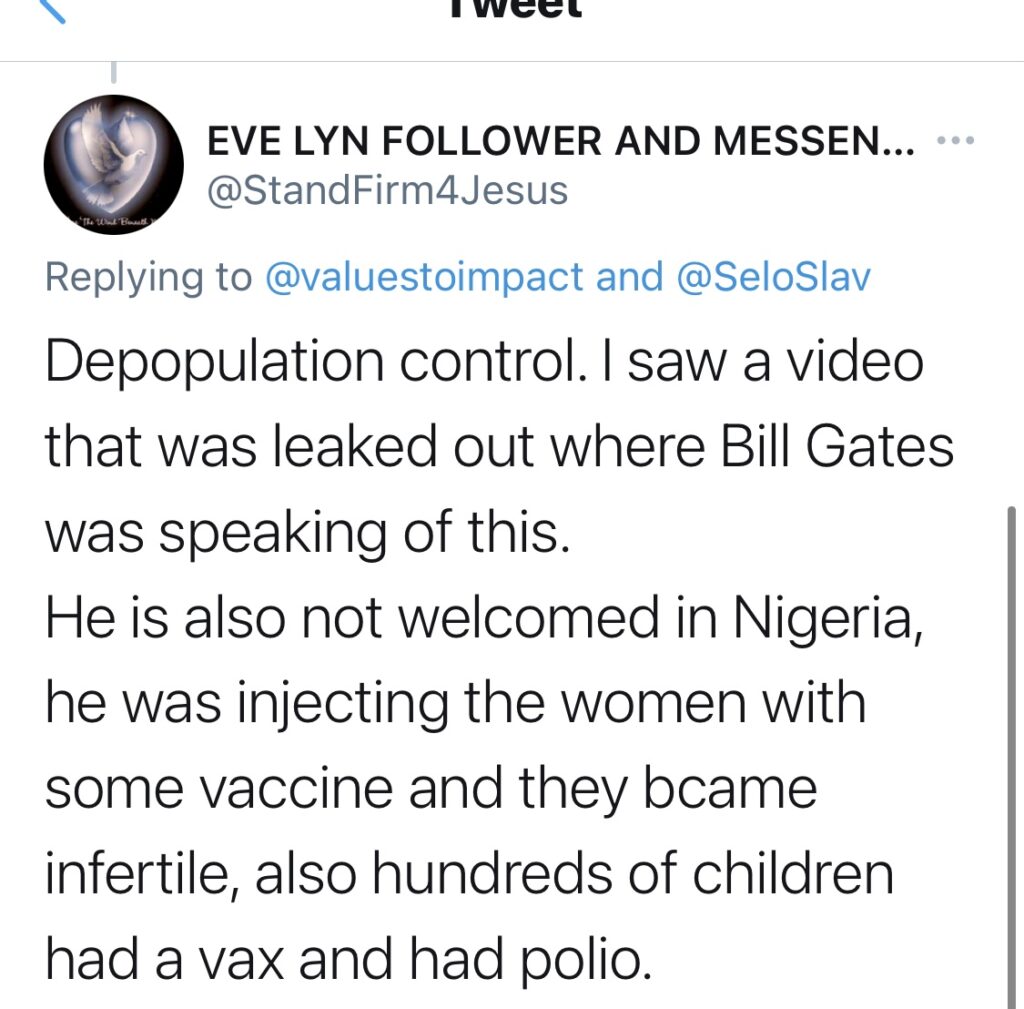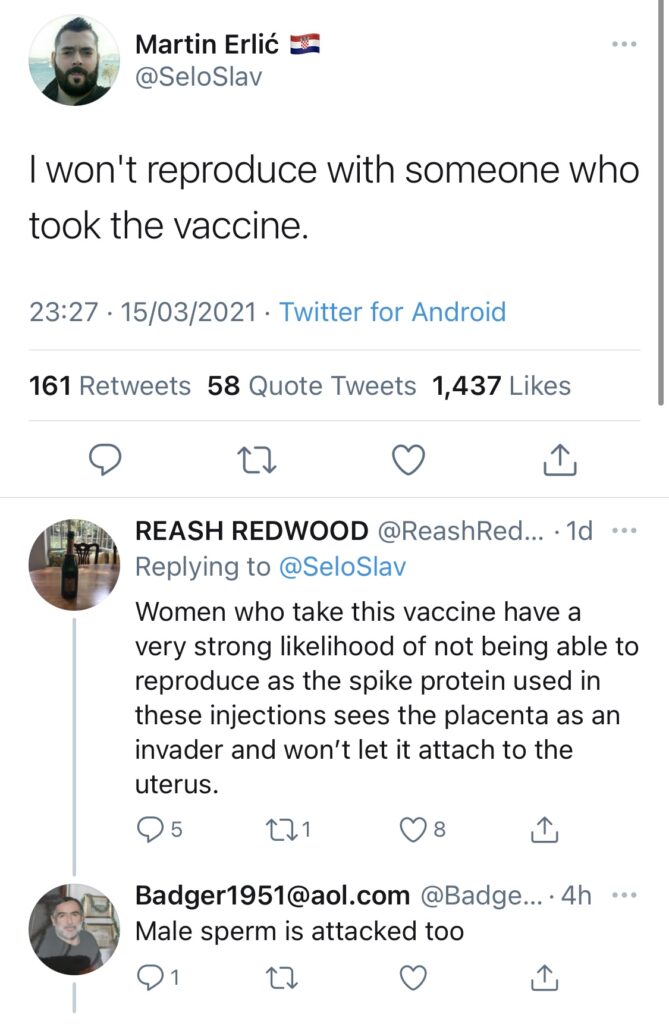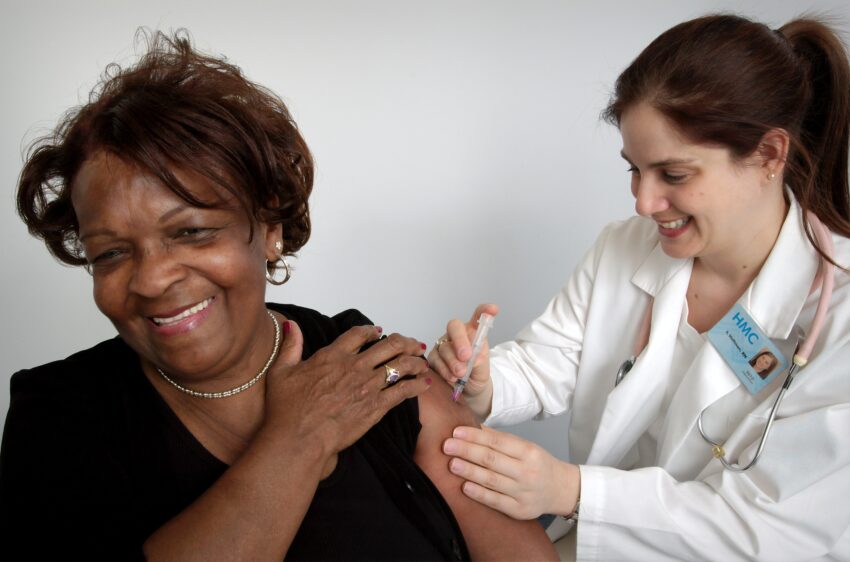Terv: Guys, Didi is explaining to me how she did not order food for me today, despite promising that she would
Didi: A Lannister always pays her debts. I will pay
Terv: I know it looks like we open most of our banter posts talking about food, but you should know that conversations around food, eating food at home and finding new places to eat good food is like 75% of Didi and I’s relationship and if she doesn’t send that party pack, I will be back here next week with my own version of this video ??
Didi: …but I would have paid by then, LOL! What are we talking about today Terv?
Terv: How to take over the world?
Didi: To take over the world, we need to travel. Thankfully, vaccines are here!
Terv: LOL. Worst ?? segway?? ever. But yeah, on today’s round of Impolite banter, we’re discussing vaccinations in Africa. Lessons from the West and how brands can get involved.
Didi: Been getting SMS’ from NCDC on the vaccine? I think they can do a better job with their messaging.
Terv: What is their current messaging?
Didi: Essentially just says something around “the vaccine is here and has been tried and tested.” I think they need to do a much better job of educating people and perhaps a nationwide campaign addressing specific reservations people have. Compared to what the US and other countries are doing to sway Anti-Vaxxers, we haven’t even started.
Terv: I want to believe that widespread sensitization will come. But with the low numbers of vaccines available altogether, I can understand why they’re not rolling out the red carpet to convince everyone to get on board.
Didi: Seen any good convincing efforts from brands?
Terv: I’ve seen a couple great efforts. One easy example that comes to mind was in the UK with one of the major Affirmations Apps. They had a “Grateful for Vaccines” message well timed to go live with the announcement of the vaccinations getting rolled out. It got some decent traction on Twitter.
Didi: That’s nice. I’ve also seen both the UK and America use micro and macro influencers to convince their communities
Terv: I think that this is especially relevant for marginalized communities. In a similar vein, i’m liking what the Bill and Melinda Gates foundation are doing with writers like Adichie
Didi : Uhhh, not seen that. What did they do?
Terv: So they assembled what can only be described as the Avengers of writers (obviously Adichie is Iron Man) and got them to write short stories on how vaccines are basically the reason we’re alive today

Didi: This is so cool. Education in healthcare is really key, and using storytelling is certainly a way to go. I think influencers will be the strongest route to take and by influencers I mean actual people with authority and not those that make noise online. Imagine if the government works with church leaders? Omo! You’ve captured a super large market.
Terv: Baffles me that a lot of people don’t know they were vaccinated multiple times when they were born. The amount of vaccination slander fascinates me. I blame a lot of the energy on all that misinformation around 4G and population control spread during the height of COVID

Didi: Certainly. Proportionality bias played a huge role.
Terv: Tell the people what that means Dexter’s sister
Didi: So proportionality bias is where people believe there must be some bigger reason and COVID-19 wasn’t just caused by some animal but it is some huge targeted event. So the vaccines cannot be just vaccines or medicine, but chips designed to control you

Terv: Hehe! Big events must have big causes. If you’re a strategist or an aspiring marketing strategist, there’s a lesson in here for you in consumer behaviour: it’s why “testimonies” are such a powerful tool in spiritual quarters – human beings are highly prone to confirmation bias: if you want to sell to people, tap into an ideology they already think or believe. Our good pastor with the jerry curl can give a master class here.
Didi: When are we giving our own masterclass?
Terv: Any moment now, we will launch a webinar. Nigerians love a good webinar with four panelists – always four panelists, that have words like “SheEO,” “Chief Operating Officer” and “Head of Products” beside their names.
Anyway, back to our conversation, the success of vaccinations will need to involve brands (outside of pharmaceuticals). If historical evidence is anything to go by, then we know that the private sector in Africa is where we really get some reprise.
Didi: Are you suggesting that Flutterwave, Dangote and the likes need to play a role?
Terv: In normal times, brands can do “moya look away” with public health efforts, but we can agree that times are far from normal. But yes! Brands always have a role to play to give back to the communities they earn from: especially in times like this– there’s always the opportunity to put your resources to work for social good
Didi: Fair enough. So an idea could be a bank/investment company visualizing how the vaccine is an investment, and how it adds up to make you live a better life?
Terv: I was thinking more around companies, especially tech and e-commerce companies who are in an interesting position to help – many tech firms have empty offices right now and companies like Jumia and Konga have vast distribution networks and expertise in getting things where they need to be. Amazon for example in the US has set up and hosted pop-up vaccination clinics
Didi: Okay so you’re talking about distribution, and I’m talking about conversion.Two very difficult challenges we are facing.
Terv: Conversions meaning convincing people to take the vaccine?
Didi: Yes. Speaking of distribution, it’ll be so good if LG or Haier Thermocool build a few fridges for this purpose.
Terv: OOUUUUUU that would be something! But I think only a few brands should take the role of convincing people. It’s too polarising– and I’m usually a fan of the polarizing– but so many brands wouldn’t survive the negative associations it could come with.
Didi: I think it’s about standing for something.
Terv: It is, but If I sat in a boardroom, I’d vote to leave the convincing for the government and religious organisations: they’re the biggest networks anyway, if anyone can do it– they can!
Didi: Networks! I agree. I also agree that I wouldn’t advise just any brand to take it on. Especially in a superstitious society like ours.
Terv: Even influencers could get burned– Omo lomo will start answering “How much did they pay you to sell your soul?”
Didi: Lmao. #CancelOmolomo. A topic for another day is how brands can ride on religious networks to grow. Case in point La Casera.
Terv: *takes notes*
Restaurants are also another possible network. I originally thought they’d be a good spot for vaccinations, but I don’t want to think of a syringe while i’m ordering my Rotisserie chicken. I like the Starbucks case study: they have donated the time and expertise of their operations and analytics teams to support the vaccination sites
Didi: Uhhh that’s interesting. So they stayed away from anything that could link their foods with vaccines but still found a way to help.
Terv: Exactly! I think brands just need to be really smart about it. We’re always talking about how the best campaigns are the ones that earn mileage- the RTs, the free PR and since no brand is currently doing this, now is the best time (at least to start planning).
Side bar: It just occurred to me that we used to have much nicer public health campaigns in Nigeria back in the day
Didi: Which ones?
Terv: I remember “I need to know” the UNFPA sponsored TV show and how good that was in spreading sexual health awareness (in addition to giving us Funke Akindele)
Didi: Uhhh that was good. I know MTV Shuga was a HIV campaign as well. Also, how a public health campaign was almost as big as “Super Story.” Old Nollywood bangs abeg!
Terv: One more thing brands can do take the employee branding opportunities smacking them in the face: give workers paid time off and offer gig workers incentives (bonuses perhaps) to go get vaccinated
Didi: Sounds good. The government can start with civil servants.
Terv: So that they will continue to misplace our NYSC certificates?
Didi: Lmao. Please they need time off. They’re never “on seat” anyway. Rounding off, what are our lessons today?
Terv: Lesson 1: Companies need to get involved. If you have the resources to help, don’t worry about if you’ll be perceived as performative or not, just do it. We’ll thank you for it. Lesson 2: The government needs to step up and do more sensitisation. This is the time to get all the agbadas and suits in one social distanced open air space and speak about how everyone is going to pitch in. Lesson 3: There are multiple routes to offer help. Find yours: you can give your space out, or offer your employees time off or contribute your distribution channels (i’m looking at you FMCG companies)
Didi: Lesson 3.5: Nollywood needs to come through with a COVID-19 movie
Terv: Bold of you to assume Nollywood didn’t already have a head start

Didi: Can’t believe I underestimated my brethren. Wait, why are they all holding guns? Is this a “we wrestle not against flesh and blood” situation?
Terv: Covid is a hooligan and will be treated as such
Terv: Any last words Didi? Maybe an ode to the anti vaxxers
Didi: If Bill Gates cared about putting chips in anyone, he’d have planted it since you were born. You’re also alive thanks to vaccinations so please, come off it!
Terv: Wow, I said an ode Didi, not call them ‘odes’
Didi: Oh. Lol. Same difference.
Terv: Welp! Posterity will show that I tried Bantus!
Let us know in the comments if there are any other things you’d like to see tech companies, big pharmas, other retail establishments and even the government and religious institutions do to support the roll out of the vaccines (or if you’re not a fan of the vaccines). We’ll be reading the comments!


Another hilarious piece ???. Didi and Terv I will only take the vaccine after I hear both of you have been injected with it. Honestly I think we can’t discount the fears around it simply because it hasn’t been around long enough for anyone to know the long term side effects of it. Sooo….
Another good strategy will be what krispy kreme is doing abroad, giving free donuts to people who have been vaccinated. Incentivized campaigns